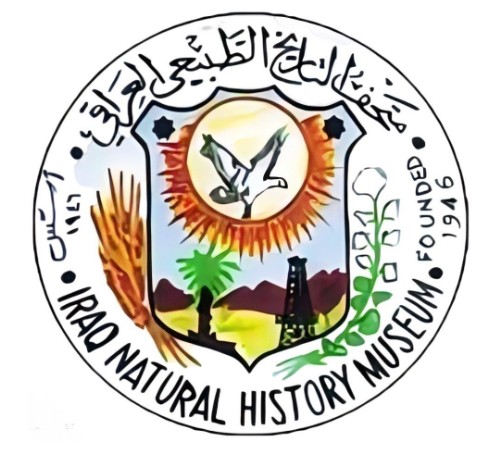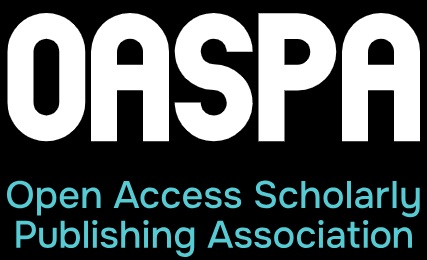REVIEW OF OPISTHOGLYPHOUS SNAKES (REPTILIA, OPHIDIA ) OF IRAQ
DOI:
https://doi.org/10.26842/binhm.7.2019.15.3.0335Keywords:
Iraq, Opisthoglypha, Poisonous, Snake, VenomousAbstract
Seven species of semi venomous Opisthoglypha snakes (Reptilia, Ophidia) of Iraq are listed with important characteristics in morphology due to geographical and individual variation of species, as well, the confusion in the scales count of Telescopus tessellatus martini (Schmidt, 1939) of Iraq are discussed.
Downloads
Download data is not yet available.
References
Afrasiab, S. R. and Ali, H. A. 1989. Report on a collection of reptiles from Rumaila desert, South of Iraq. Bulletin of the Iraq Natural History Museum, 8 (2): 65-73.
Afrasiab, S. R. and Mohamad, S. I. 2011. First record of the rat snake, Zamenis hohenackeri (Strauch, 1873), from north-eastern Iraq with notes on other colubrid snakes. Zoology in the Middle East, 54 (1):19-22.
Afrasiab, S. R. and Mohamad, S. I. 2014. New records of snakes from Iraq (Reptilia: Colubridae). Zoology in the Middle East, 60(1): 92-94.
Afrasiab, S. R., Al-Moussawi, A. A. and Hadi, H. D. 2018. Annotated checklist of reptilian fauna of Basrah, South of Iraq. Bulletin of the Iraq Natural History Museum, 15 (1): 77-92.
Amr, Z. S. and Disi, A.M. 2011. Systematics, distribution and ecology of the snakes of Jordan. Vertebrate Zoology, 61(2): 179-266.
Anderson, S. C. 1963. Amphibians and reptiles from Iran. Proceedings of the California Academy of Science, Ser. 4, 31(16): 417-498.
Boulenger, G. A. 1920. Mesopotamian expeditionary force, (1915-1919). A list of snakes from Mesopotamia. Journal of the Bombay Natural History Society, 27: 347–350.
Carranza, S., Arnold, E. N. and Pleguezuelos, J. M. 2006. Phylogeny, biogeography, and evolution of two Mediterranean snakes, Malpolon monspessulanus and Hemorrhois hippocrepis (Squamata, Colubridae), using mtDNA sequences. Molecular Phylogenetics and Evolution, 40 (2): 532-546.
Corkill, N. L. 1932. Snakes and snake bite in Iraq. Bailliere, Tindall and Cox, London, Ix+ 51pp.
Khalaf, K. T. 1959. Reptiles of Iraq, with some notes on the amphibians. Ar-Rabitta Press, Baghdad, Vii+ 96 pp.
Latifi, M. 1991. The snakes of Iran. The society for study of Amphibians and Reptiles, Oxfords, Ohio, 159 pp.
Leviton, A. E., Anderson, S. C., Adler, K. and Minton, S. A. 1992. Handbook to Middle East amphibians and reptiles (Contributions to Herpetology). Society for the study of amphibians and reptiles, Oxford, Ohio, 252pp.
Mohammad, M. K., Ali, H. H., Ali, B. A. and Hadi, A. M. 2013. The biodiversity of Bahr Al-Najaf depression, Al-Najaf Al-Ashraf province. Bulletin of the Iraq Natural History Museum, 12(3): 21-30.
Rhadi, F. A., Mohammed, R. G., Rastegar-Pouyani, N., Rastegar-Pouyani, E., and Yousef khani, S. S. H. 2017. On the snake fauna of central and Southern Iraq and some zoogeographic remarks. Russian Journal of Herpetology, 24 (4): 251-266.
Reed, C. A., and Marx, H. 1959. A herpetological collection from northeastern Iraq. Transactions of the Kansas Academy of Science, 62:91-122.
Schmidt, K. P. 1939. Reptiles and amphibians from Southwestern Asia. Field Museum of Natural History, Zoological series, 24 (7): 49-92.
Terentjive, P. and Chernove, S. A. 1965. Key to Amphibians and Reptiles (of USSR). Smithsonian institution, Washington DC. English translation of 3rd edition (1949), 315pp.
Venchi, A. and Sindaco, R. 2006. Annotated checklist of the reptiles of the Mediteranean countries, with keys to species Identification. Part 2-Snakes (Reptilia, Serpentes). Annali del Museo Civico di Storia Naturale "Giacomo Doria", Genova, 98:259-364.
Afrasiab, S. R. and Mohamad, S. I. 2011. First record of the rat snake, Zamenis hohenackeri (Strauch, 1873), from north-eastern Iraq with notes on other colubrid snakes. Zoology in the Middle East, 54 (1):19-22.
Afrasiab, S. R. and Mohamad, S. I. 2014. New records of snakes from Iraq (Reptilia: Colubridae). Zoology in the Middle East, 60(1): 92-94.
Afrasiab, S. R., Al-Moussawi, A. A. and Hadi, H. D. 2018. Annotated checklist of reptilian fauna of Basrah, South of Iraq. Bulletin of the Iraq Natural History Museum, 15 (1): 77-92.
Amr, Z. S. and Disi, A.M. 2011. Systematics, distribution and ecology of the snakes of Jordan. Vertebrate Zoology, 61(2): 179-266.
Anderson, S. C. 1963. Amphibians and reptiles from Iran. Proceedings of the California Academy of Science, Ser. 4, 31(16): 417-498.
Boulenger, G. A. 1920. Mesopotamian expeditionary force, (1915-1919). A list of snakes from Mesopotamia. Journal of the Bombay Natural History Society, 27: 347–350.
Carranza, S., Arnold, E. N. and Pleguezuelos, J. M. 2006. Phylogeny, biogeography, and evolution of two Mediterranean snakes, Malpolon monspessulanus and Hemorrhois hippocrepis (Squamata, Colubridae), using mtDNA sequences. Molecular Phylogenetics and Evolution, 40 (2): 532-546.
Corkill, N. L. 1932. Snakes and snake bite in Iraq. Bailliere, Tindall and Cox, London, Ix+ 51pp.
Khalaf, K. T. 1959. Reptiles of Iraq, with some notes on the amphibians. Ar-Rabitta Press, Baghdad, Vii+ 96 pp.
Latifi, M. 1991. The snakes of Iran. The society for study of Amphibians and Reptiles, Oxfords, Ohio, 159 pp.
Leviton, A. E., Anderson, S. C., Adler, K. and Minton, S. A. 1992. Handbook to Middle East amphibians and reptiles (Contributions to Herpetology). Society for the study of amphibians and reptiles, Oxford, Ohio, 252pp.
Mohammad, M. K., Ali, H. H., Ali, B. A. and Hadi, A. M. 2013. The biodiversity of Bahr Al-Najaf depression, Al-Najaf Al-Ashraf province. Bulletin of the Iraq Natural History Museum, 12(3): 21-30.
Rhadi, F. A., Mohammed, R. G., Rastegar-Pouyani, N., Rastegar-Pouyani, E., and Yousef khani, S. S. H. 2017. On the snake fauna of central and Southern Iraq and some zoogeographic remarks. Russian Journal of Herpetology, 24 (4): 251-266.
Reed, C. A., and Marx, H. 1959. A herpetological collection from northeastern Iraq. Transactions of the Kansas Academy of Science, 62:91-122.
Schmidt, K. P. 1939. Reptiles and amphibians from Southwestern Asia. Field Museum of Natural History, Zoological series, 24 (7): 49-92.
Terentjive, P. and Chernove, S. A. 1965. Key to Amphibians and Reptiles (of USSR). Smithsonian institution, Washington DC. English translation of 3rd edition (1949), 315pp.
Venchi, A. and Sindaco, R. 2006. Annotated checklist of the reptiles of the Mediteranean countries, with keys to species Identification. Part 2-Snakes (Reptilia, Serpentes). Annali del Museo Civico di Storia Naturale "Giacomo Doria", Genova, 98:259-364.











